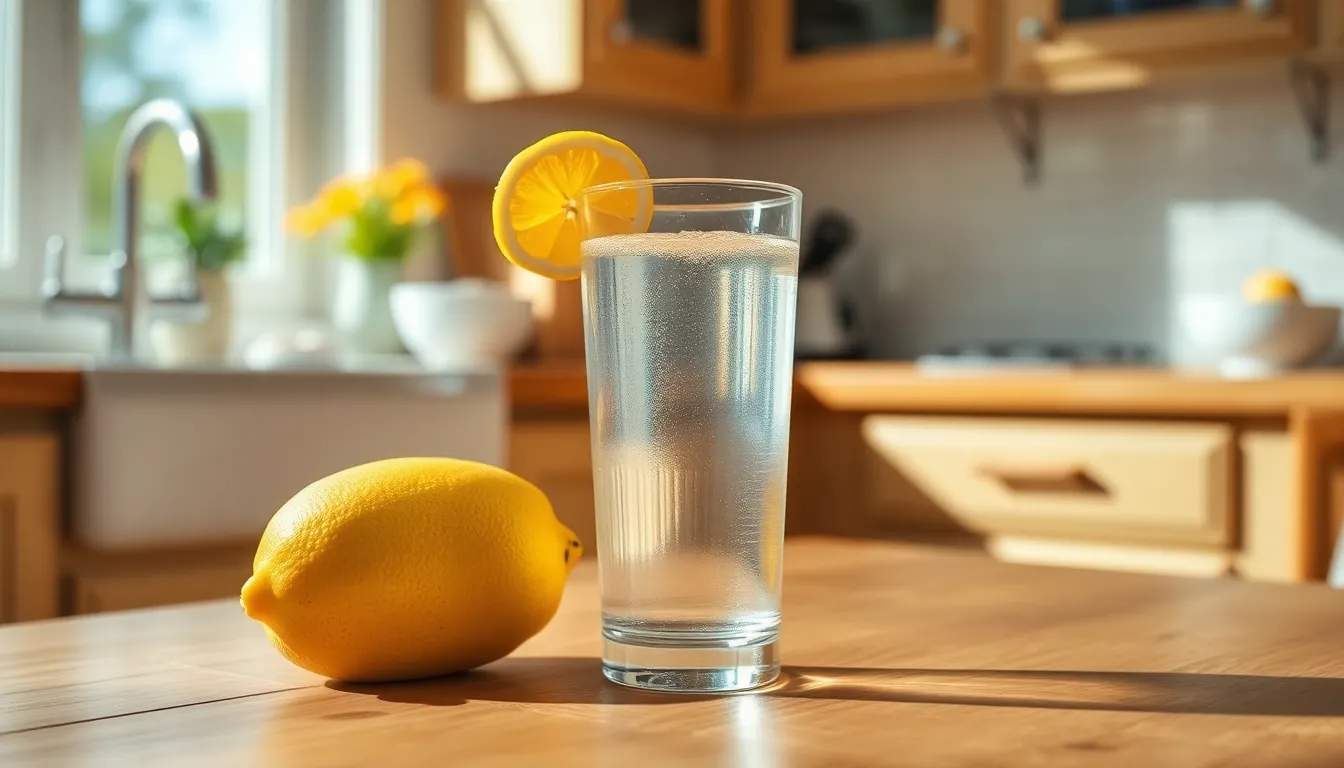Acid reflux can feel like a fiery dragon breathing down your throat, leaving you wondering if there’s any relief in sight. What if the answer lies in something as simple as a glass of water? Yes, that’s right! This clear and refreshing liquid might just be your secret weapon against the discomfort of heartburn.
Drinking water isn’t just for hydration; it could potentially soothe that burning sensation and help balance your stomach’s acidity. While it won’t replace your favorite antacid, it might just make your day a little easier. So, grab a glass and let’s dive into how this everyday drink can turn the tide in the battle against acid reflux.
Table of Contents
ToggleUnderstanding Acid Reflux
Acid reflux occurs when stomach acid rises into the esophagus, leading to discomfort. This condition often results in symptoms that can disrupt daily life.
What Is Acid Reflux?
Acid reflux is the backward flow of stomach contents into the esophagus. This happens when the lower esophageal sphincter fails to close properly. Gastric acids irritate the lining of the esophagus, causing inflammation. Individuals may experience this condition occasionally or as part of gastroesophageal reflux disease (GERD). Various factors contribute to acid reflux, including diet, obesity, and smoking. Certain foods, like citrus and chocolate, can exacerbate symptoms, making management critical.
Common Symptoms of Acid Reflux
Common symptoms of acid reflux include heartburn, regurgitation, and chest pain. Heartburn presents as a burning sensation in the chest, often after eating. Regurgitation involves the sensation of acid backing up into the throat or mouth. Some may also experience a persistent cough, hoarseness, or difficulty swallowing. Symptoms may worsen when lying down or bending over. Recognizing these signs helps individuals seek timely relief and appropriate treatment.
The Role of Hydration in Digestion

Staying hydrated plays a vital role in maintaining digestive health. Water aids in the breakdown of food, contributing to the efficiency of digestion and nutrient absorption. It helps produce saliva, which is crucial for chewing and swallowing. A well-hydrated body can better manage stomach acidity, possibly reducing discomfort associated with acid reflux. Drinking water can soothe the esophagus and dilute stomach acid, providing temporary relief from heartburn symptoms.
Importance of Water for Digestive Health
Water supports proper digestion by maintaining the mucosal lining of the gastrointestinal tract. It enables the smooth passage of food through the intestines. Adequate hydration can prevent constipation, which may otherwise exacerbate acid reflux symptoms. Fermenting food particles in the gut can occur when dehydration limits digestive efficiency. A steady intake of water promotes regular bowel movements, which is essential for overall digestive well-being.
How Dehydration Affects Stomach Acid
Dehydration influences stomach acid production negatively. Insufficient water intake may lead to thicker stomach lining and increased acidity in the digestive tract. Elevated acid levels can trigger symptoms of acid reflux more frequently. A lack of hydration reduces the buffer system in the stomach, making it harder for the body to neutralize acid. Furthermore, dehydration can strain bodily functions, complicating digestion and leading to discomfort.
Does Drinking Water Help With Acid Reflux?
Drinking water may provide relief from acid reflux symptoms. Some studies support the idea that hydration contributes to reducing discomfort associated with heartburn.
Scientific Studies and Findings
Research highlights the benefits of drinking water for individuals experiencing acid reflux. A study published in the American Journal of Gastroenterology found that water can dilute stomach acid and potentially alleviate symptoms. These findings suggest that individuals who drink water before meals may experience less heartburn. Another study found that maintaining proper hydration levels supports optimal esophageal function, which is crucial for managing acid reflux. Adequate water intake might also aid in digestion and enhance the efficiency of the digestive process.
Anecdotal Evidence and Personal Experiences
Personal experiences often highlight the role of water in easing acid reflux. Many individuals report that sipping water during episodes of heartburn provides temporary relief. These anecdotal accounts suggest that drinking water helps neutralize acidity and soothes the esophagus. Some people note that their symptoms improve when they stay hydrated throughout the day. Observations also indicate that small amounts of water consumed during meals can minimize discomfort. While these personal experiences vary, they emphasize the potential benefits of water in managing acid reflux symptoms effectively.
Other Dietary Considerations for Acid Reflux
Diet plays a crucial role in managing acid reflux symptoms. Understanding which foods to avoid and which to incorporate can greatly improve comfort levels.
Foods to Avoid
Certain foods trigger or worsen acid reflux symptoms. Citrus fruits, including oranges and lemons, can increase acid production. Spicy dishes often lead to discomfort, as do fatty foods that slow digestion. Chocolate and caffeine relax the lower esophageal sphincter, allowing acid to escape. Carbonated beverages can create pressure in the stomach, exacerbating symptoms. Finally, garlic and onions can irritate the esophagus, compounding the issue. Identifying personal triggers can help in reducing the frequency and severity of acid reflux episodes.
Foods That May Help
Incorporating specific foods may alleviate acid reflux symptoms. Oatmeal serves as a good starting point, as it absorbs stomach acid. Ginger has natural anti-inflammatory properties and may soothe the digestive tract. Bananas, due to their low acidity, provide a gentle option for relief. Leafy greens, including spinach and kale, help balance stomach acidity. Lean meats such as chicken and turkey, when grilled or baked, digest easily without provoking reflux. Lastly, non-citrus fruits like melons and apples can offer a sweet yet safe alternative that promotes comfort. Choosing these foods creates a favorable digestive environment for those suffering from acid reflux.
Drinking water can be a simple yet effective strategy for managing acid reflux symptoms. Staying hydrated not only aids digestion but may also provide temporary relief from heartburn by diluting stomach acid. While it shouldn’t replace medical treatments or dietary adjustments, incorporating water into one’s routine can enhance overall digestive health.
By recognizing the importance of hydration and making informed choices about food and drink, individuals can take proactive steps toward alleviating discomfort. Understanding personal triggers and maintaining a balanced diet alongside proper hydration may lead to a more comfortable life for those affected by acid reflux.





